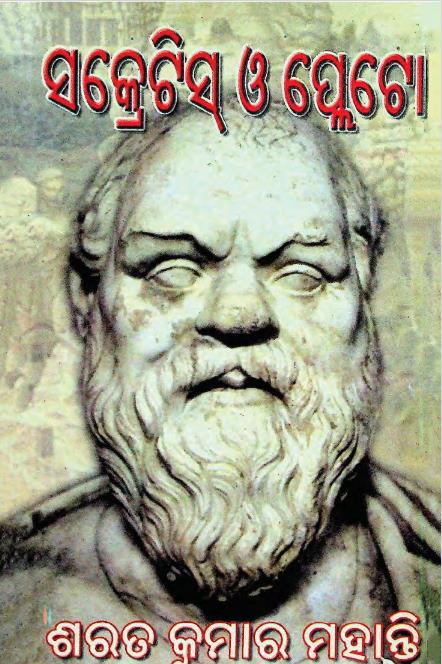In the realm of Odia literature, the philosophical discourses that emerge are often profound, bridging ancient wisdom with contemporary thought. One significant work that stands as a testament to this philosophical lineage is Odia Sakretis o Plato by Sarat Kumar Mohanty, first published in 1970 and later in its second edition in 2003. This text not only delves into the teachings of Plato, one of Western philosophy’s most influential figures, but also contextualizes these teachings within the rich tapestry of Odia culture and thought.
Odia Sakretis o Plato serves as a critical exploration of Plato’s ideologies, particularly his views on the nature of reality, knowledge, and the ideal state. Mohanty’s work is a cerebral endeavor that seeks to make Platonic philosophy accessible to the Odia-speaking populace. He embarks on a journey through Plato’s dialogues, such as The Republic and The Apology, elucidating concepts like the Theory of Forms and the Socratic method. Mohanty’s articulate interpretation and commentary provide readers with insights into how Plato’s ideas can inform modern ethical and political discourse.
One of the most commendable aspects of Mohanty’s text is its synthesis of Eastern and Western philosophies. The author draws parallels between Platonic thought and indigenous Odia philosophical traditions, such as the teachings of Sankardeva and Jagannatha Das. This comparative approach allows readers to appreciate the universality of philosophical inquiries across different cultures. By situating Plato within the context of Odia culture, Mohanty fosters a dialogue between Eastern and Western paradigms, encouraging readers to transcend cultural boundaries in their pursuit of knowledge.
The strength of Odia Sakretis o Plato lies in its clarity and accessibility. Mohanty’s writing style is both engaging and academic, effectively catering to a diverse audience, from philosophy enthusiasts to lay readers interested in the intersection of culture and thought. Additionally, his analysis is grounded in a thorough understanding of both Plato’s texts and the Odia intellectual tradition, which adds depth to his arguments.
However, while the text celebrates the commonalities between Platonic and Odia philosophies, some critics argue that it occasionally glosses over the divergences that could have provided richer insights. A more nuanced examination of these differences might have enhanced the discourse on how context shapes philosophical inquiry. Moreover, contemporary readers may find the socio-political implications of Plato’s ideas—such as his often controversial views on governance and social class—require further exploration within the Odia setting.
Ultimately, Odia Sakretis o Plato stands as an important contribution to both Odia literature and philosophical discourse. Sarat Kumar Mohanty successfully bridges the gap between two rich intellectual traditions, providing readers with a framework to engage with Plato’s ideas critically and compassionately. The work invites us to reflect on the nature of knowledge, ethics, and governance while urging a dialogue between the past and the present. In doing so, it not only enriches our understanding of Plato but also reaffirms the relevance of philosophy in the contemporary world, making it a significant read for anyone interested in the philosophical dialogue across cultures.
Books Info
| Books name | Sakretis o Plato/ସକ୍ରେଟିସ ଓ ପ୍ଲାଟୋ |
| Author | Sarat Kumar Mohanty |
| No Of pages | 637 |
| Publisher | Agraduta |
| Publication | 2013 |
| Printed At | M Printers |
| Distributor | NA |

